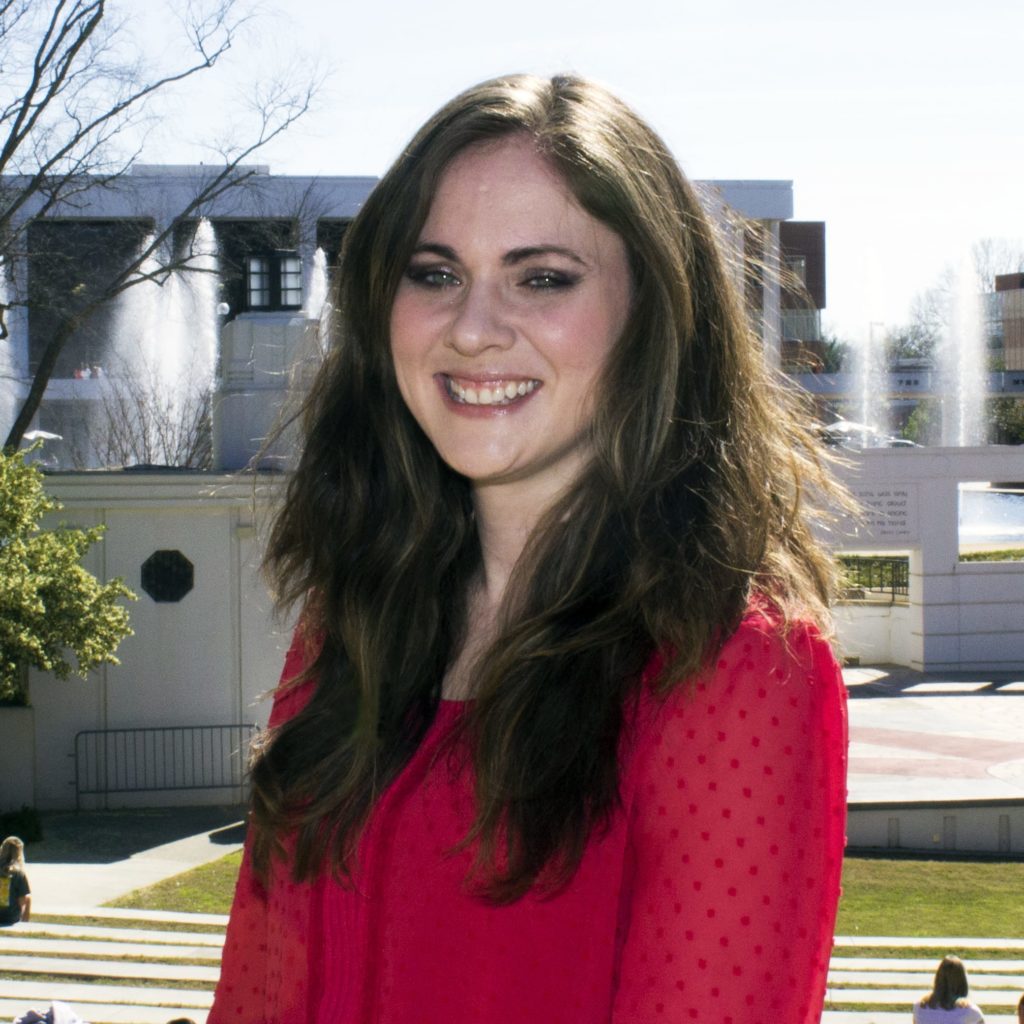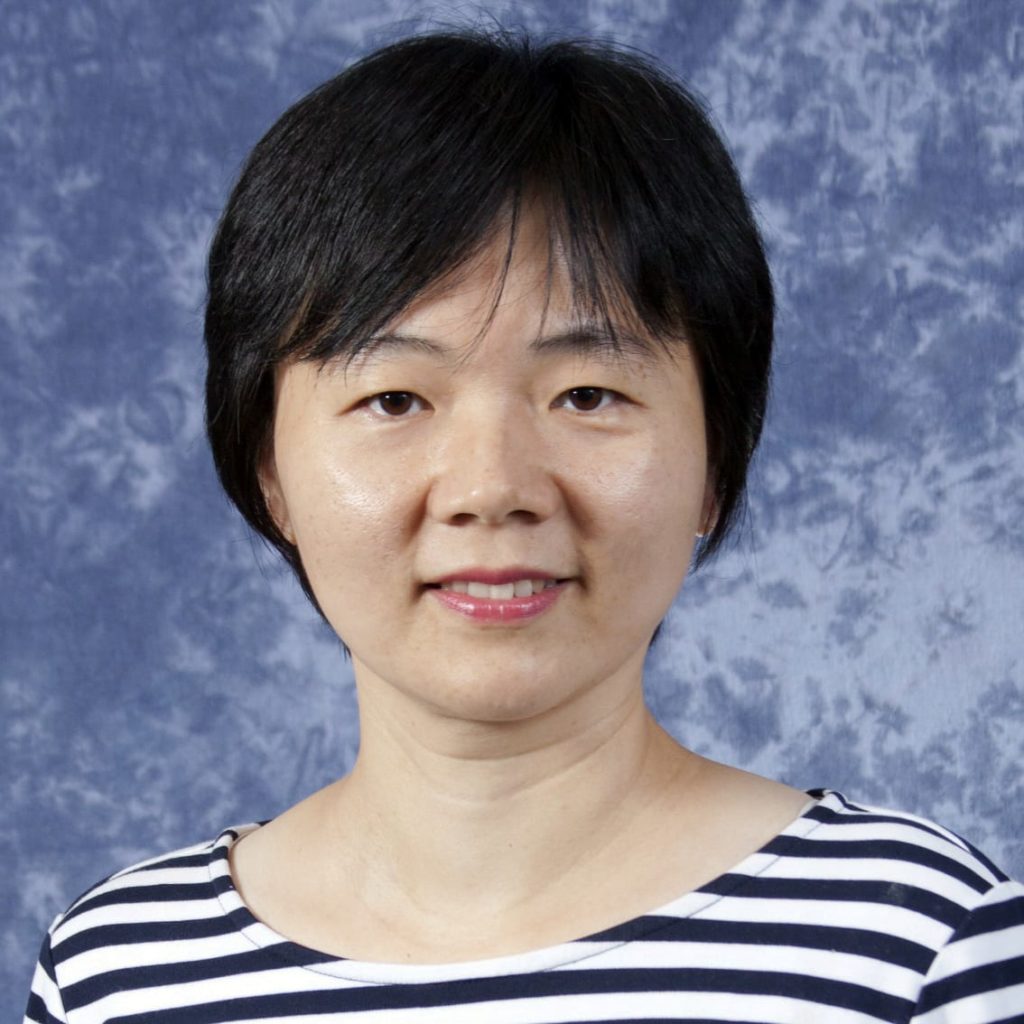College of Behavioral, Social and Health Sciences names inaugural research innovation faculty fellows

The Clemson University College of Behavioral, Social and Health Sciences has recognized two faculty members as Research Innovation Faculty Fellows. This recognition allows tenured or tenure-track faculty members to devote a summer and semester term to scholarship and specifically external grant proposal development.
The two fellows are Marissa Shuffler, associate professor in the Clemson University Department of Psychology, and Lu Zhang, assistant professor in the Clemson University Department of Public Health Sciences.
According to Rachel Mayo, associate dean for research and graduate studies in the College, fellows can shift their focus from regular teaching and service duties to developing comprehensive research agendas. She said the work of both Shuffler and Zhang align with the missions of both the College and the University.
“Each of these faculty members has represented our college well through their research, so we want to give them each the opportunity to cement their reputations as experts in their respective research areas,” Mayo said. “This opportunity will also help them gain additional support in effectively submitting grant proposals, which will benefit other faculty members and position them as mentors for future fellows.”
Applicants for the program were required to furnish a detailed plan as well as specific grant opportunities they would pursue if they were named fellows. Mayo said both Shuffler and Zhang provided an impressive research plan, but they also made a compelling case for their research portfolios going forward and how they intend to pursue future grant awards.

Shuffler seeks to extend her existing research on teamwork and team effectiveness to large scientific research collaborations working to solve society’s grand challenges. These collaborations are complex to manage because they usually require multiple teams of researchers to work together across different disciplines, organizations and geographical locations. Shuffler will focus on identifying the key roles, behaviors, structures and interventions associated with successful outcomes for these types of large-scale collaborative efforts, with the goal of publishing at least one article summarizing key recommendations for scientific research collaborations.
Additionally, Shuffler will use the support provided by the fellowship to develop an institute or center that will conduct and implement translational research on teamwork and collaboration, with the goal of turning research into practical tools and resources for faculty, students and professional development. She has identified funding opportunities that would build upon this initial fellowship’s goals and plans to share the knowledge gained from the fellowship through a workshop series and online tools provided through the College to benefit faculty and students alike.
“Effective collaboration and teamwork skills are so critical for faculty researchers trying to solve grand challenges, but they are equally as important for students preparing to enter the future workforce,” Shuffler said. “I am eager to use this fellowship to shape a team science initiative that will answer the call for re-envisioning general education to prepare students for a broad spectrum of 21st-century careers.”
Zhang has extensive research in cancer epidemiology, especially in relation to lung cancer screenings. Through the fellowship, Zhang plans to conduct a systematic review on the adherence of patients to annual repeat low-dose computed tomography, which has been shown to reduce lung cancer mortality by up to 20% among high-risk populations.

She will examine the changes in proportion of early stage lung cancer diagnosis and lung cancer mortality since 2015 in the U.S. population, taking into account numerous factors including stage, age, gender, race/ethnicity, insurance status and residential urbanicity. Zhang has already identified funding mechanisms to which she will send a proposal summarizing her findings. She said she is excited by the prospect of using data to examine the impact of a potentially life-saving health screening.
“Lung cancer causes more deaths than breast, prostate, and colorectal combined in the U.S.,” Zhang said. “Lung cancer screening has the great potential to save lives but it is still in its infancy stage, so we are excited to use real-world data to improve population-based lung cancer screening programs and to examine its public health impact.”
Fellows will work closely with Mayo and research development staff throughout the fellowship, submitting updates throughout the fellowship that detail their progress and presenting their research findings. Mayo said that both projects hold a great deal of potential for the College and the University, as they both align with the college’s mission of “building people and communities.”
“The work of Drs. Shuffler and Zhang exemplifies why the research priorities in our college are so important,” Mayo said. “One improves how people work together across a variety of disciplines, while the other measurably demonstrates how lives can be saved through health screenings. I’m excited to see just how impactful their work will be in a practical way for so many going forward, and I am sure that this fellowship opportunity will help them make that impact.”
The Department of Psychology and the Department of Public Health Sciencesare part of the University’s College of Behavioral, Social and Health Sciences (CBSHS). Established in July 2016, CBSHS is a 21st-century, land-grant college that combines work in seven disciplines – communication; nursing; parks, recreation and tourism management; political science; psychology; public health sciences; sociology, anthropology and criminal justice – to further its mission of “building people and communities” in South Carolina and beyond.
The post College of Behavioral, Social and Health Sciences names inaugural research innovation faculty fellows appeared first on Clemson News.
